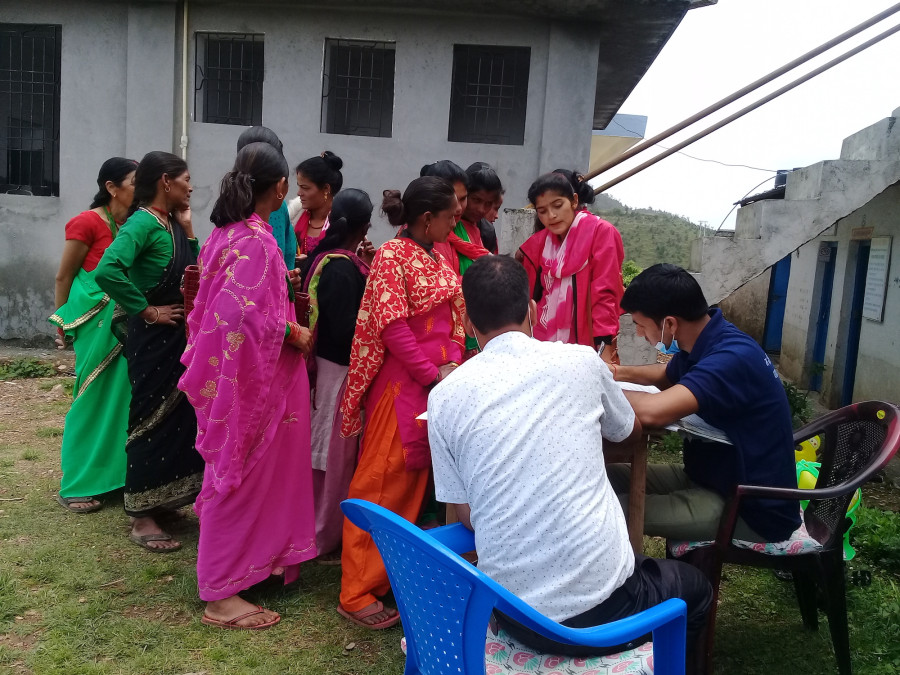Editorial
No country for girl child
The perceived importance of having a son continues to exert manifold pressure on women.
Sapana, a 35-year-old mother of seven daughters, has been giving birth every two years or so in the hopes of bearing a son. Forty-five-year-old Lalmati Dhami, who told this paper that her reproductive health had deteriorated over the years, is another example. Her first four children are daughters, and she bore two more children, both sons. The youngest is just seven years old. In Baitadi, where both women hail from, district health officials say women face many health repercussions, both physical and mental, as they face constant pressure to keep on bearing children until they give birth to a son.
But Baitadi is not a story in isolation. Son preference is such a deep-seated and cultural manifestation of gender discrimination and inequality across the country that even people from affluent and educated backgrounds suffer from a mindset that doesn’t accept daughters as children. As a result, women’s health has been compromised, and their human rights snatched to satisfy the age-old harmful preference for sons. Frequent pregnancies have dangerous and long-lasting consequences for women, according to doctors who say women suffer from anaemia, uterine prolapse and other reproductive health issues which also contribute to poor maternal and female child mortality rates.
The issue of reproductive and mental health, however, is just one of the many consequences of son preference in the country. Multiple factors such as the tradition of dowry and inheritance of property, despite laws to address them, also drive other forms of crimes against women. The prevalence also reflects in various studies, notably in a 2016 study by the Asian Centre for Human Rights, which ranked Nepal 11th in skewed child ratio at birth. According to the study, son preference in the country is primarily driven by socio-cultural, economic and religious factors which award men with exclusive rights, responsibilities and priorities. In contrast, women’s social, economic, cultural and political status is inferior to that of men.
Last year, a study which used data on ultrasound use to quantify links between prenatal knowledge of sex, parity and skewed sex ratio at birth from six tertiary hospitals in Nepal discovered that between September 2015 and March 2017, some hospitals registered deliveries of 121 male births per 100 female births. Researchers who surveyed some 75,428 women state that their analysis explicitly supports sex-selective abortion as the dominant cause of the skewed sex ratio at birth in the study hospitals. This is an alarming manifestation of son preference in the country, due to which female foetuses are being aborted every year, despite laws prohibiting sex-selective abortion.
Nepal has marked significant progress in maternal and child mortality rates in the last two decades, despite the conflict that ravaged the country. It has also made progress in ensuring that women have better access to political, economic and social spheres by introducing gender-inclusive policies and legal reforms to deal with gender-based discrimination and violence against women. On paper, the law protects women and grants them inalienable rights, but when it comes to practice and implementation of the rules, the country lags far behind, mainly because of the general attitude of men and the conservative gender roles dictated by a deep-seated patriarchal structure that looks down on women.
Son preference and crimes against women are only the by-products of the patrilineal culture that the government and we as the public need to address to change society for the better and live up to the commitments we have made internationally. While legal reforms and national policies provide the framework to eradicate the perceived importance of having a son that continues to exert manifold pressure on women, we need to also focus on cultural and advocacy interventions to ensure gender equality, which is the root problem of our society. We must act now to ensure that girls don’t have to sacrifice themselves even before being born to make way for boys.




 18.12°C Kathmandu
18.12°C Kathmandu














